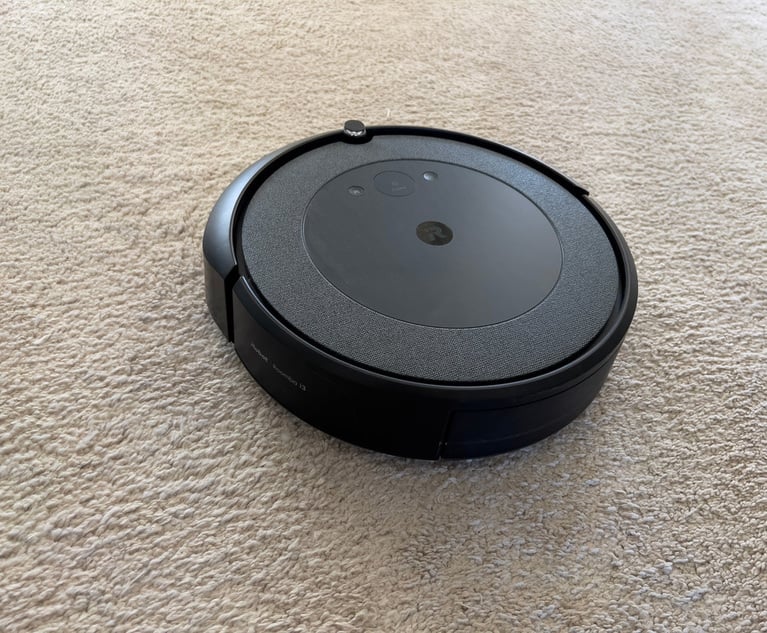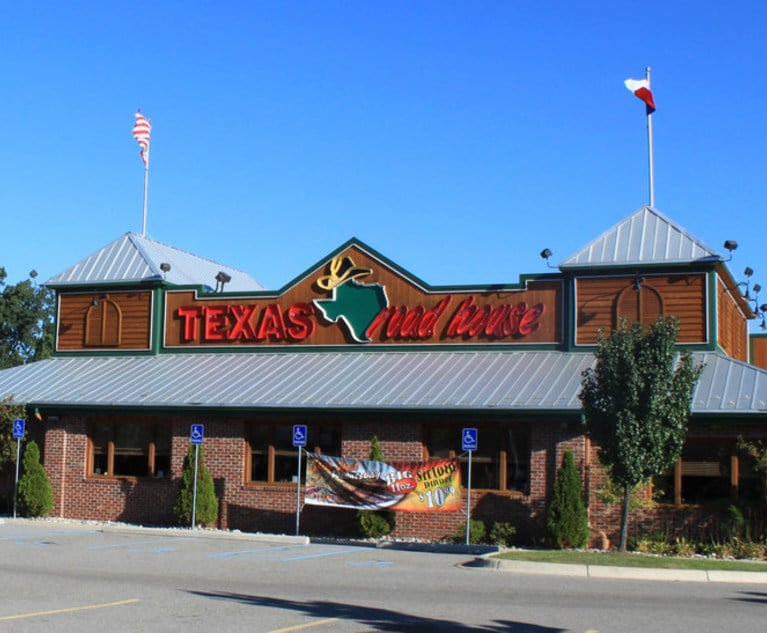Settlement Details Show How Walmart Restricted Scope of Compliance Monitor
Jay Jorgensen, former executive vice president and global chief ethics and compliance officer at Walmart, said the in-house lawyers and compliance team showed monitor Louis Freeh how they had built a state-of-the-art compliance program to remediate the problem. The DOJ, however, was not impressed.
June 24, 2019 at 06:39 PM
4 minute read
 Walmart retail store. Photo: Shutterstock
Walmart retail store. Photo: Shutterstock
One of the most unusual factors about the long-awaited Walmart Inc. foreign bribery settlement last week was its treatment of the compliance monitor.
Attached to the end of the nonprosecution agreement between the company and the U.S. Department of Justice was a 14-page section describing in meticulous detail the monitor's duties and timetable for completing them.
Laura Perkins, a partner in Hughes Hubbard & Reed's Washington, D.C., office and co-chair of the anti-corruption and internal investigations practice, said she was surprised by the wording in the attachment.
“It's not the usual form language,” Perkins said. “The monitor's mandate is more limited by this agreement; it's restricted to certain countries and certain business lines.” The countries involved were Brazil, China, India and Mexico.
Another surprising aspect, she said, was the agreement makes clear Walmart hired the monitor prior to signing the deal.
It states, “The company retained the monitor prior to the date on which the company's nonprosecution agreement is executed for the purposes of preparing a written work plan, as described below.”
Perkins said, “That's different. Normally a work plan is determined after the monitor studies what should be looked at using a risk-based approach.”
Jay Jorgensen, who until recently was executive vice president and global chief ethics and compliance officer at Walmart, confirmed the company hired former FBI director Louis Freeh as its monitor, and that Freeh began working several months before Jorgensen left the company in December.
Jorgensen, now general counsel and chief compliance officer at the South Korean e-commerce company Coupang, said the in-house lawyers and compliance team showed Freeh how they had built a state-of-the-art compliance program to remediate the problem.
“We didn't just build a compliance program,” Jorgensen said. “We literally mapped out every recommendation that any U.S. or international government agency or expert group has made about compliance programs. And we tried to implement all of them—every best practice, policy and process. It was costly.”
DOJ, however, was not impressed. The agreement states, “Although the company has engaged in significant remedial measures, the fraud section and the [department] have determined that an independent compliance monitor is necessary to ensure that the company's compliance program is operating effectively and adequately tested to ensure that it meets the minimum elements set forth in the corporate compliance program.”
The agreement states the company presented three qualified candidates to federal prosecutors, and the DOJ made the final choice of Freeh.
Under terms of the three-year agreement, Freeh serves for up to two years. His term can be terminated early if all parties agree that his mandate has been met. The DOJ also reserved the right to extend his term another year if his mandate has not been met.
Karen Hewitt, a partner at Jones Day in San Diego, helped negotiate and signed the agreement for Walmart. It was also signed by Gordon Allison, Walmart's chief counsel for finance and corporate governance.
Freeh, a Rutgers Law School graduate, first worked as an FBI agent and then as an assistant U.S. attorney. He served as a U.S. district judge in the Southern District of New York from 1991 to 1993, when he was named FBI director, a position he held until May 2001. He was general counsel to MBNA America Bank from 2001 until it was acquired by Bank of America in 2007.
The following year he founded the global risk management firm Freeh Group International Solutions, headquartered in Wilmington, Delaware, with regional offices in Washington, D.C., New York, Los Angeles and Palm Beach, Florida. He also formed an affiliated law firm, Freeh Sporkin & Sullivan, with two other former federal judges: Eugene Sullivan and Stanley Sporkin.
Read More:
Walmart Agrees to Pay $282M and Hire Louis Freeh as Monitor in FCPA Settlement
Between the Lines: Walmart In-House Lawyers Played Key Roles in Scandal
How Wal-Mart Avoided a Record Fine but Still Paid Dearly
Wal-Mart FCPA Settlement Offers Big Lessons for GCs About Bribery
This content has been archived. It is available through our partners, LexisNexis® and Bloomberg Law.
To view this content, please continue to their sites.
Not a Lexis Subscriber?
Subscribe Now
Not a Bloomberg Law Subscriber?
Subscribe Now
NOT FOR REPRINT
© 2025 ALM Global, LLC, All Rights Reserved. Request academic re-use from www.copyright.com. All other uses, submit a request to [email protected]. For more information visit Asset & Logo Licensing.
You Might Like
View All

Starbucks Hands New CLO Hefty Raise, Says He Fosters 'Environment of Courage and Joy'


Riding High, Texas Roadhouse Gives Legal Chief 3-year Contract Extension,15% Salary Boost
2 minute readTrending Stories
- 1A&O Shearman To Lose Another Five Lawyers to EY
- 2Pearl Cohen Enters San Francisco Market Via Combination With IP Boutique
- 3'Incredibly Complicated'? Antitrust Litigators Identify Pros and Cons of Proposed One Agency Act
- 4'A Warning Shot to Board Rooms': DOJ Decision to Fight $14B Tech Merger May Be Bad Omen for Industry
- 5Securities Action Targeting Polestar Alleges Mistakes in SEC Filings
Who Got The Work
J. Brugh Lower of Gibbons has entered an appearance for industrial equipment supplier Devco Corporation in a pending trademark infringement lawsuit. The suit, accusing the defendant of selling knock-off Graco products, was filed Dec. 18 in New Jersey District Court by Rivkin Radler on behalf of Graco Inc. and Graco Minnesota. The case, assigned to U.S. District Judge Zahid N. Quraishi, is 3:24-cv-11294, Graco Inc. et al v. Devco Corporation.
Who Got The Work
Rebecca Maller-Stein and Kent A. Yalowitz of Arnold & Porter Kaye Scholer have entered their appearances for Hanaco Venture Capital and its executives, Lior Prosor and David Frankel, in a pending securities lawsuit. The action, filed on Dec. 24 in New York Southern District Court by Zell, Aron & Co. on behalf of Goldeneye Advisors, accuses the defendants of negligently and fraudulently managing the plaintiff's $1 million investment. The case, assigned to U.S. District Judge Vernon S. Broderick, is 1:24-cv-09918, Goldeneye Advisors, LLC v. Hanaco Venture Capital, Ltd. et al.
Who Got The Work
Attorneys from A&O Shearman has stepped in as defense counsel for Toronto-Dominion Bank and other defendants in a pending securities class action. The suit, filed Dec. 11 in New York Southern District Court by Bleichmar Fonti & Auld, accuses the defendants of concealing the bank's 'pervasive' deficiencies in regards to its compliance with the Bank Secrecy Act and the quality of its anti-money laundering controls. The case, assigned to U.S. District Judge Arun Subramanian, is 1:24-cv-09445, Gonzalez v. The Toronto-Dominion Bank et al.
Who Got The Work
Crown Castle International, a Pennsylvania company providing shared communications infrastructure, has turned to Luke D. Wolf of Gordon Rees Scully Mansukhani to fend off a pending breach-of-contract lawsuit. The court action, filed Nov. 25 in Michigan Eastern District Court by Hooper Hathaway PC on behalf of The Town Residences LLC, accuses Crown Castle of failing to transfer approximately $30,000 in utility payments from T-Mobile in breach of a roof-top lease and assignment agreement. The case, assigned to U.S. District Judge Susan K. Declercq, is 2:24-cv-13131, The Town Residences LLC v. T-Mobile US, Inc. et al.
Who Got The Work
Wilfred P. Coronato and Daniel M. Schwartz of McCarter & English have stepped in as defense counsel to Electrolux Home Products Inc. in a pending product liability lawsuit. The court action, filed Nov. 26 in New York Eastern District Court by Poulos Lopiccolo PC and Nagel Rice LLP on behalf of David Stern, alleges that the defendant's refrigerators’ drawers and shelving repeatedly break and fall apart within months after purchase. The case, assigned to U.S. District Judge Joan M. Azrack, is 2:24-cv-08204, Stern v. Electrolux Home Products, Inc.
Featured Firms
Law Offices of Gary Martin Hays & Associates, P.C.
(470) 294-1674
Law Offices of Mark E. Salomone
(857) 444-6468
Smith & Hassler
(713) 739-1250






